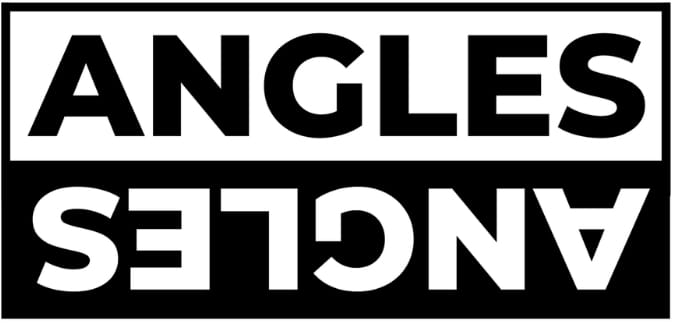Angles: Should you vote yes or no on Measure 28?

Everyone knows that the presidential election is coming up on Nov. 5.
More is happening on that day than just the federal election, though. South Dakota’s 2024 ballot features a number of important issues that voters can weigh in on. For example, Amendment G addresses state abortion laws, and Initiated Measure 29 once again proposes the legalization of recreational marijuana.
Another of the initiated measures on South Dakota’s ballot is Initiated Measure 28, which would “prohibit state sales taxes on anything sold for human consumption, not including alcoholic beverages or prepared food,” as written on the ballot. IM28 has sparked controversy because of its potential effects on the state economy.
Below, two students argue the measure’s advantages and disadvantages.
The Mirror will dive deeper into IM28 with an informational article in the upcoming Oct. 25 print edition. The article will include perspectives from Rick Weiland, co-chair of Dakotans for Health and sponsor of IM28, and IM28 opponent Nathan Sanderson, executive director of the South Dakota Retailers Association and treasurer of South Dakotans Against a State Income Tax.
Yes, ideas matter more than words
Madisyn Stogsdill
Before writing this piece, I genuinely questioned how this topic impacted me. What is the meaning behind a ballot measure that has not even been passed yet, and why should I, a college student, take the time to research it or even vote on it?
Thanks to my Advanced Journalism class taught by Dennis Gale, my classmates and I were given a crash course on Initiated Measure 28, a new ballot initiative that plans to eliminate grocery taxes.
But it’s a little more complicated than that, as politics always seem to be.

Those in favor advocate for a firm elimination of taxes on only groceries and believe this will benefit working people and the average constituent. Those opposed think the measure’s wording is too broad and that there will need to be budget cuts due to a loss of funds. These are all valid concerns, but they are easily put to rest.
The text of IM28 says it will “prohibit state sales tax on anything sold for human consumption, not including alcoholic beverages or prepared food.”
This raises questions like what does “consumption” mean exactly? Are drugs included? Will states lose money?
“Human consumption” is not defined by state law. The authors failed to specify this, but in most proposals, concision is prioritized, since the average person won’t likely read long laws. This makes many proposals seem choppy or unclear, such as IM28.
The intention included only groceries like produce, meat and other food in hopes that it would relieve the burden of South Dakotans purchasing groceries in an increasingly expensive economy. This intention will come to fruition.
IM28 will require judicial or legislative clarification according to South Dakota’s Attorney General Marty Jackley. The courts will specify that this is just for groceries, meaning no tobacco, marijuana or toiletries, as the opposition suggests. Nothing that strays from the original intent can be added. What is important is that voters are informed of this, and they will be: the Attorney General’s Statement is featured with every measure proposed, and IM28 is no exception. Every voter will be made aware of this specificity.
Now for the financials. Forty-eight U.S. states do just fine without a grocery tax. Other states have passed similar measures and didn’t have to undergo significant budget cuts. This is not a new idea and will not have new results – our state economy is not unique. If a large number of states from varying markets and regions did not need severe budget cuts, then we won’t either.
IM28 intends to prohibit the tax on groceries, and that is exactly what it will do – this is not the first time that political jargon has been confusing, and it surely won’t be the last. But if anything has such a strong chance of benefiting the working class, then it must be done and without hesitation. Go to the polls and make the right decision. Vote yes on IM28.
No, the wording is too vague
Kevin Martinez
Initiated Measure 28 is a proposed initiative to prohibit sales tax on anything that is used for “human consumption.” This sounds great on paper, but in action, it won’t be.

You can find the first issue in the wording “human consumption.” As of now, the description suggests anything that is consumed by humans such as food, clothing, hygiene products and more will become state tax free.
Of course, that seems like a good thing until you realize all of the other products that would become tax-free as well: tobacco, vapes, marijuana and other drugs. While it is not the intention of IM28, it will make these products tax-free due to its vague, undefined wording.
The way that IM28 is worded sets South Dakota up to implement a state income tax.
If we suddenly decide to prohibit sales taxes on products for human consumption, as IM28 says, the state budget could be reduced by up to $646 million, according to South Dakotans Against a State Income Tax.
These funds would have to come from somewhere else. South Dakota would have to raise other taxes currently enforced or implement a state income tax.
Keep in mind that South Dakota is currently one of only nine states without a state income tax. While you would have tax-free food, there would be less of a paycheck for you to use to buy that food.
Another way to make up the sudden loss of tax funding would be budget cuts.
In a Dakota News Now article, House Majority Leader Will Mortenson and Senate Majority Leader Casey Crabtree said, “IM28 is a plan with no means of funding itself.”
IM28 cuts taxes and state funding with no proposed ways of replacing lost income.
Mortenson and Crabtree say that this money would be replaced by cutting the state budget, consisting primarily of education, Medicaid and public safety.
The education budget would likely suffer the most with a cut of up to 45%, totaling nearly $1.05 billion. This is not to mention that medical aid, used by 63% of South Dakotans, most of whom are children, could suffer cuts. Medicaid currently makes up 35% of the state budget.
As Crabtree and Mortenson stated, the will of the people wouldn’t be to replace taxes with more taxes.
IM28 is a plan that seems perfect… on paper. No one likes taxes, but the way this plan is written, IM28 will do more harm than good.
This November, head to the polls, and vote no on IM28.



